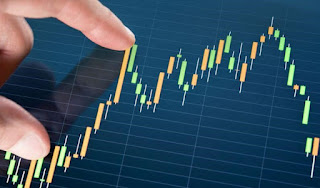The world of finance offers a vast array of investment
opportunities, each with its own unique characteristics and risks. Among these,
Forex trading stands out as one of the most dynamic and influential markets,
boasting unparalleled liquidity and continuous activity around the clock. In
this article, we will explore the fascinating world of Forex trading,
understanding its basics, benefits, and how it operates, and empowering you to
navigate this global financial arena with confidence.
What is Forex Trading?
Forex, short for Foreign Exchange, is the decentralized
global market where currencies are bought and sold. It involves trading one
currency against another with the aim of profiting from fluctuations in their
relative values. For instance, traders might buy the euro and sell the US
dollar if they anticipate the euro's value to rise against the dollar in the
future.
Unlike traditional stock markets, the Forex market doesn't
have a physical location or a centralized exchange. Instead, it operates
electronically, with participants engaging through financial institutions,
brokers, or online platforms. The Forex market operates 24 hours a day, five
days a week, thanks to its geographical dispersion, encompassing major
financial centers across different time zones.
The Basics of Forex Trading:
- Currency
Pairs: In Forex trading, currencies are always traded in pairs. The first
currency is called the "base currency," and the second currency
is the "quote currency." For example, in the EUR/USD pair, the
euro is the base currency, and the US dollar is the quote currency.
- Exchange
Rate: The exchange rate represents the value of one currency in relation
to another. It indicates how much of the quote currency is needed to buy
one unit of the base currency. Exchange rates are constantly fluctuating
due to various economic, political, and market factors.
- Long
and Short Positions: Forex trading allows traders to take either a long
position (buying) or a short position (selling) on a currency pair. If a
trader expects the base currency to appreciate, they will go long, and if
they anticipate a depreciation, they will go short.
Benefits of Forex Trading:
- Liquidity:
The Forex market is the most liquid financial market globally, with
trillions of dollars traded daily. This liquidity ensures that traders can
enter and exit positions swiftly without significant price deviations.
- Accessibility:
Forex trading is easily accessible, as it doesn't require a substantial
initial investment. Many brokers offer leverage, allowing traders to
control larger positions with a relatively smaller amount of capital.
- Market
Hours: With the Forex market operating 24/5, traders from different time
zones can participate at their convenience. This flexibility enables
individuals to trade around their existing commitments and preferences.
- Diverse
Trading Options: The Forex market offers a wide range of currency pairs to
trade, allowing investors to explore various opportunities across major,
minor, and exotic currencies.
How Forex Trading Works:
Forex trading is influenced by a myriad of factors, and
understanding these drivers is essential for successful trading. Some of the
key factors that impact the Forex market include:
- Economic
Indicators: Economic data such as GDP growth, employment figures, and
inflation rates have a significant impact on a country's currency value.
Strong economic performance often strengthens a nation's currency, while
weak economic data can lead to depreciation.
- Central
Bank Policies: Central banks play a crucial role in Forex markets by
setting interest rates and implementing monetary policies. Changes in
interest rates or policy outlooks can lead to sharp currency movements.
- Geopolitical
Events: Political stability and major geopolitical events, such as
elections or referendums, can cause uncertainty in the Forex market.
Traders closely monitor these events for potential trading opportunities.
- Market
Sentiment: Investor sentiment and market psychology can drive short-term
fluctuations in currency pairs. Positive or negative news can influence
trader perceptions, leading to buying or selling pressures.
- Technical
Analysis: Forex traders often use technical analysis to analyze historical
price charts and identify potential patterns or trends. These analyses can
assist in making informed trading decisions.
Risks of Forex Trading:
While Forex trading offers numerous opportunities, it also
carries inherent risks that traders should be aware of:
- Volatility:
The currency markets can experience rapid and substantial price
fluctuations, exposing traders to significant volatility.
- Leverage:
While leverage can amplify profits, it also magnifies losses. Traders must
exercise caution when using leverage to manage risk effectively.
- Geopolitical
Risks: Unforeseen geopolitical events can lead to sudden and adverse
currency movements, catching traders off-guard.
- Lack
of Regulation: The decentralized nature of the Forex market means that
it's not subject to the same level of regulation as traditional stock
markets. This can make it susceptible to fraud and manipulation.
Conclusion:
Forex trading is a captivating world that offers
unparalleled opportunities for traders worldwide. Its immense liquidity,
accessibility, and potential for profit make it an attractive option for both
seasoned investors and newcomers. However, it is crucial to approach Forex
trading with proper knowledge, risk management strategies, and a disciplined
mindset. By understanding the fundamentals, keeping up with market
developments, and employing sound trading techniques, individuals can navigate
the Forex market with confidence and make informed decisions to achieve their
financial goals. Remember, like any financial endeavor, success in Forex
trading comes with dedication, perseverance, and continuous learning.



![[Hot Post] এখন নিজেই আপনার Windows Pc এর Font Change করুন খুব সহজে With ScreenShot](https://blogger.googleusercontent.com/img/b/R29vZ2xl/AVvXsEjrvgkpQD0KnE1JofUxdP3FfsM6-F_SaQiS3abKaNrne-k8gfOem_UA7JIoidd-lM_rNmoB4OhOpfm1QFCgsdoWyvjCrmoXTc1JDb7nfaM_HLCeVc5dJEHGP-ja-slzcvemLU9BnTAAp3gr/w680/BdMag24.CoM+-+Windows+PC.jpg)






